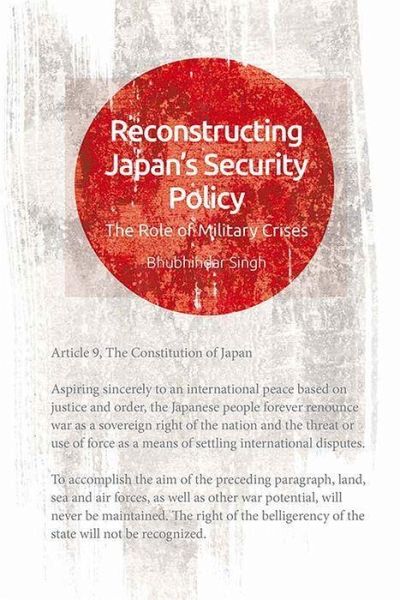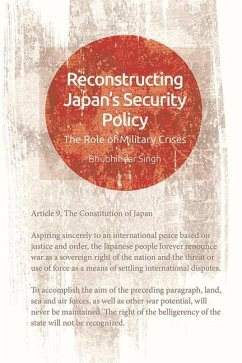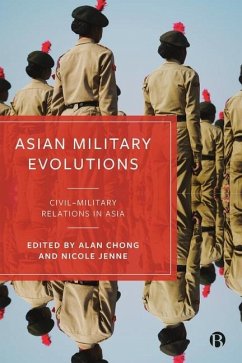
Reconstructing Japan's Security Policy
The Role of Military Crises
Versandkostenfrei!
Versandfertig in über 4 Wochen
127,99 €
inkl. MwSt.
Weitere Ausgaben:

PAYBACK Punkte
64 °P sammeln!
Systematically analyses the impact of external military crises on Japanese security policy expansion in the post-Cold War period. This book is a detailed study of the role that external military crises played in the development and growth of Japanese security policies in the period following the end of the Cold War. This evolution can be seen in the widened role of the Self-Defence Force (SDF) in shaping Japan's security priorities, as well as its proactive contribution to regional/ international security. Focusing on four key case studies - international peacekeeping in 1992, regional defence...
Systematically analyses the impact of external military crises on Japanese security policy expansion in the post-Cold War period. This book is a detailed study of the role that external military crises played in the development and growth of Japanese security policies in the period following the end of the Cold War. This evolution can be seen in the widened role of the Self-Defence Force (SDF) in shaping Japan's security priorities, as well as its proactive contribution to regional/ international security. Focusing on four key case studies - international peacekeeping in 1992, regional defence in 1997-99, global missions in 2003-05, and collective self-defence in 2014-15 - the author argues that the Japanese security policymaking elite achieved security policy expansion by utilizing external military crises as policy windows, inflating and deflating threat elements to circumvent the constraints and justify the implementation of security policy initiatives. Bhubhindar Singh is Associate Professor and Head of the Graduate Programmes Office at the S. Rajaratnam School of International Studies (RSIS), Nanyang Technological University (NTU), Singapore.













